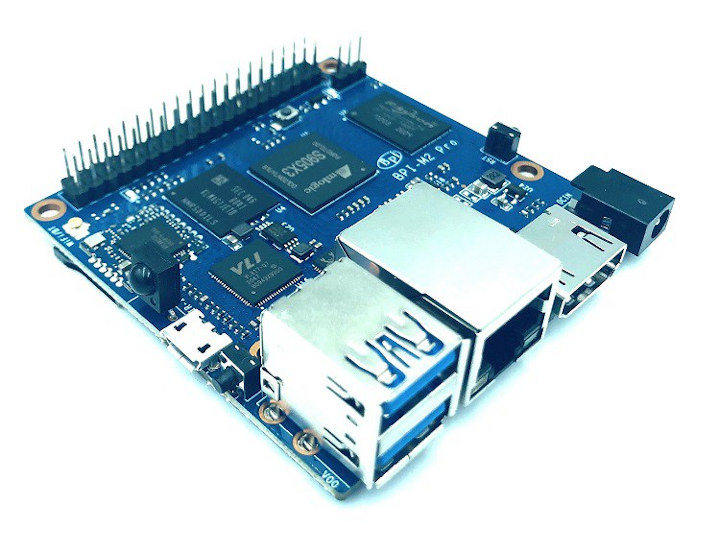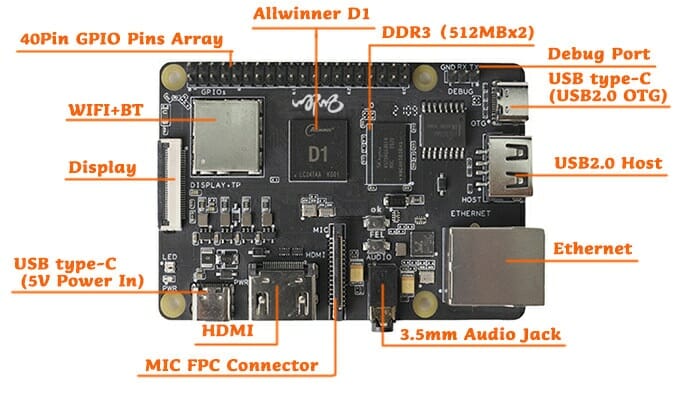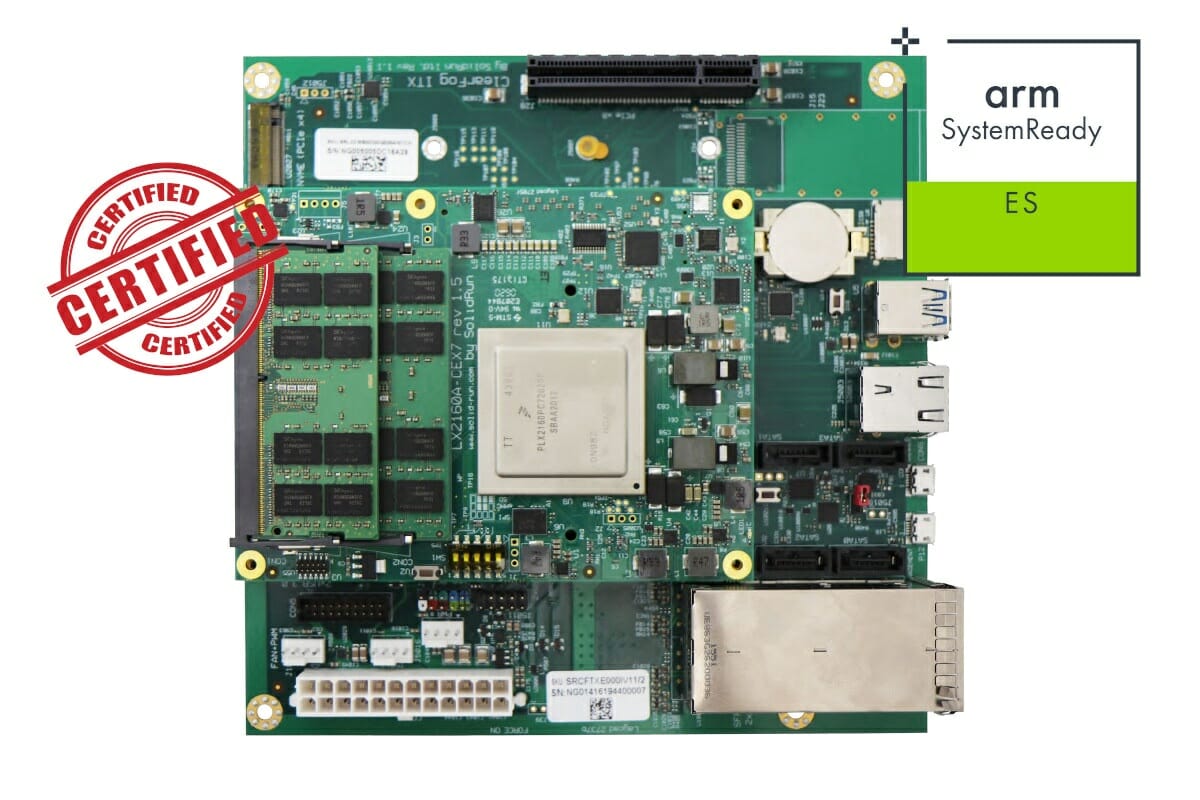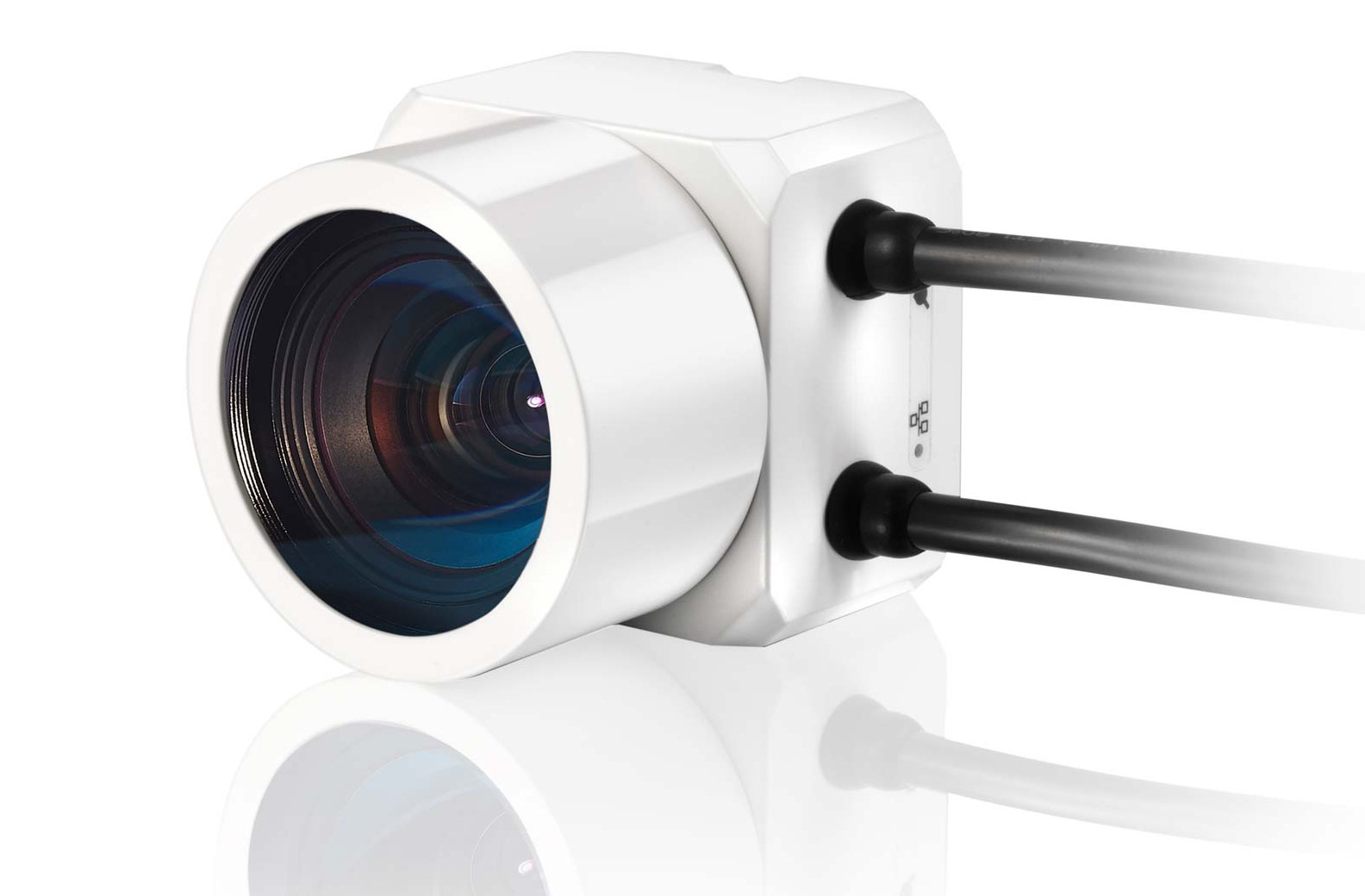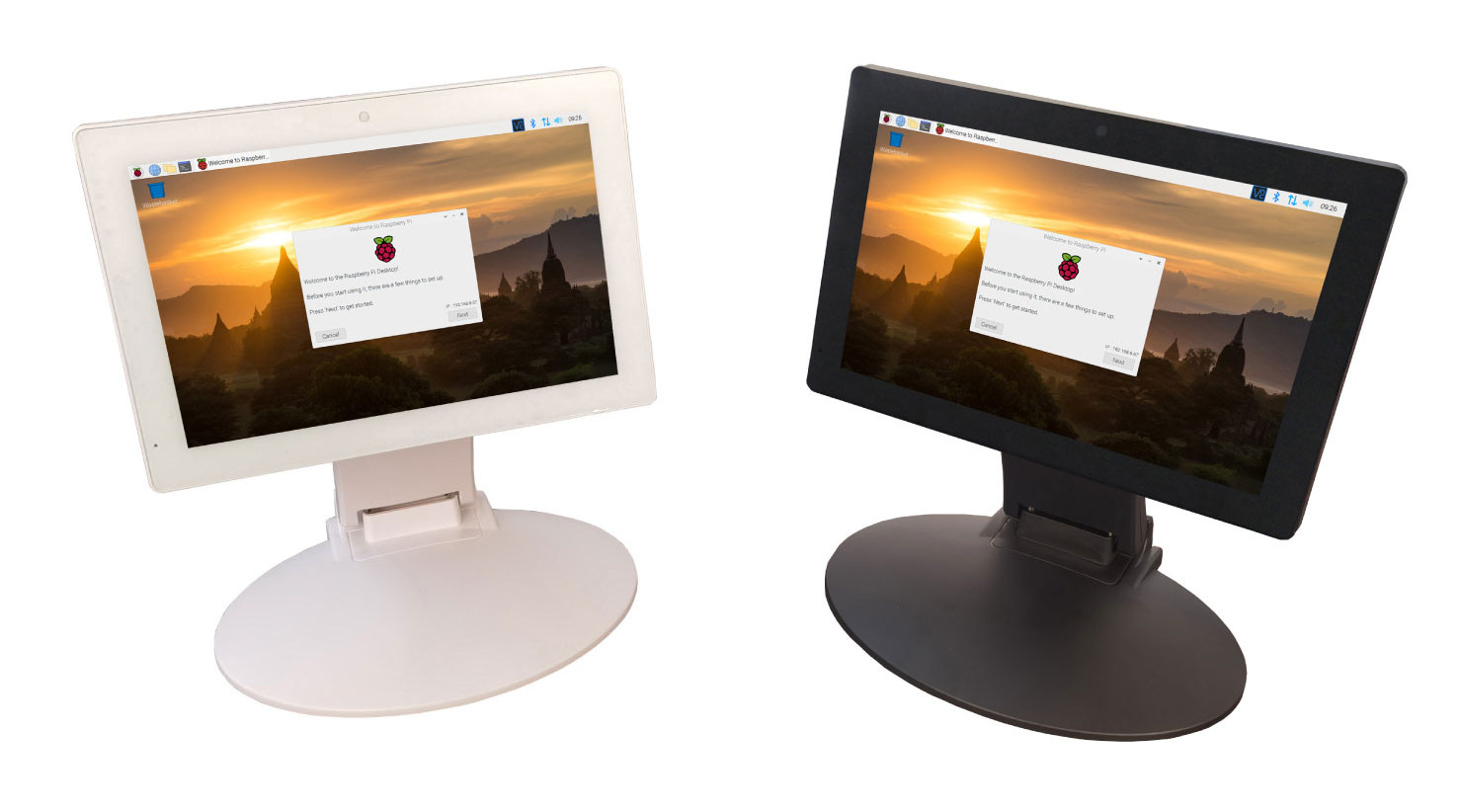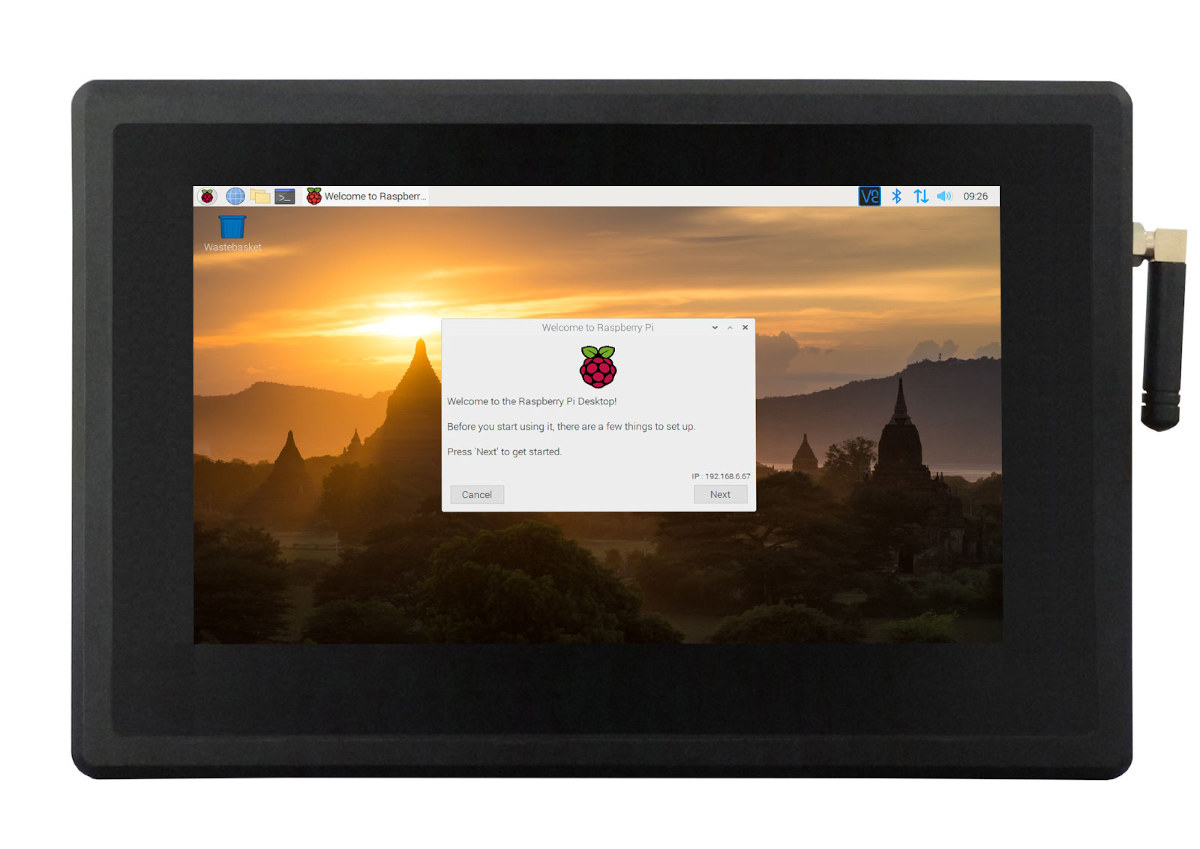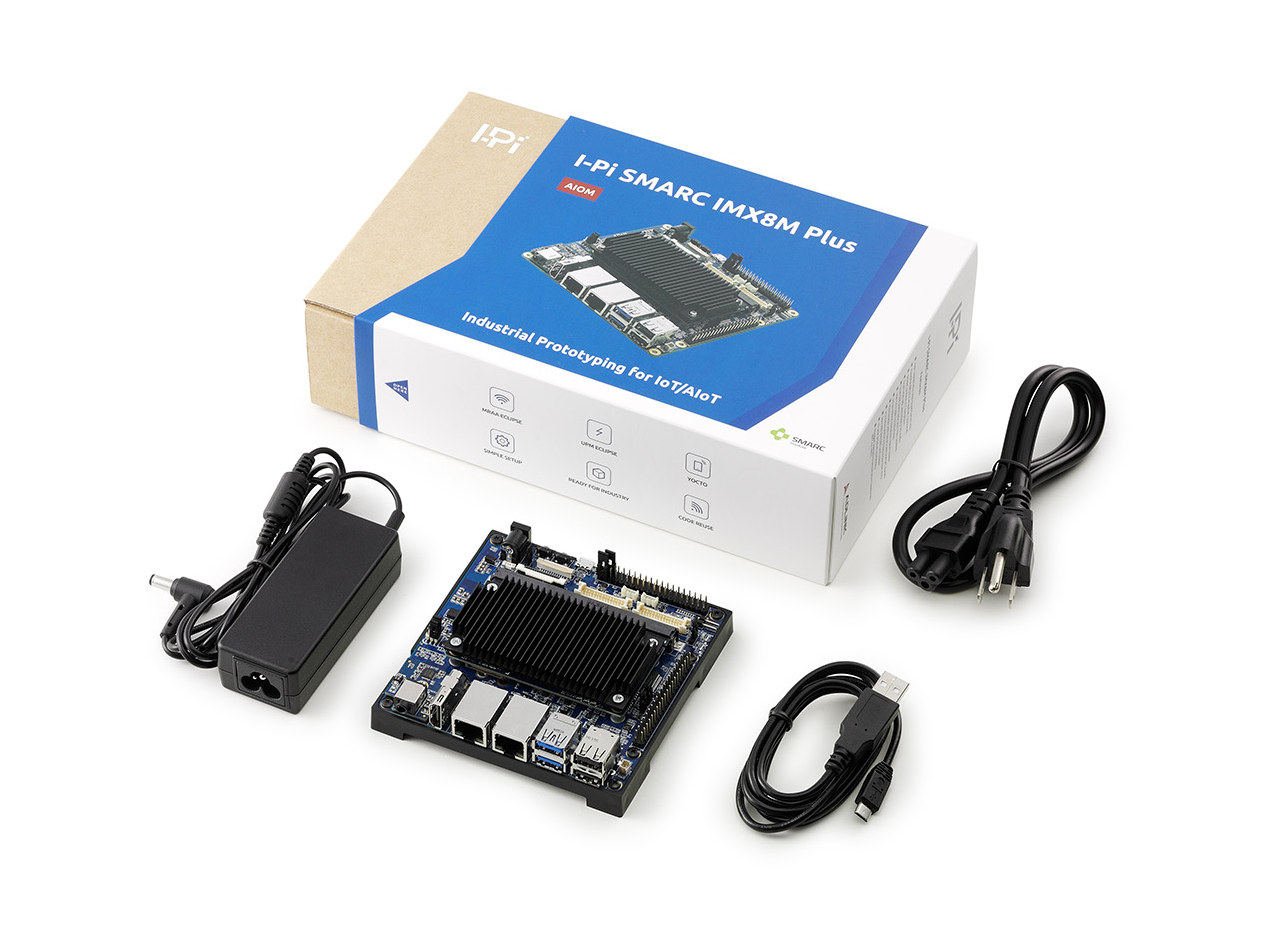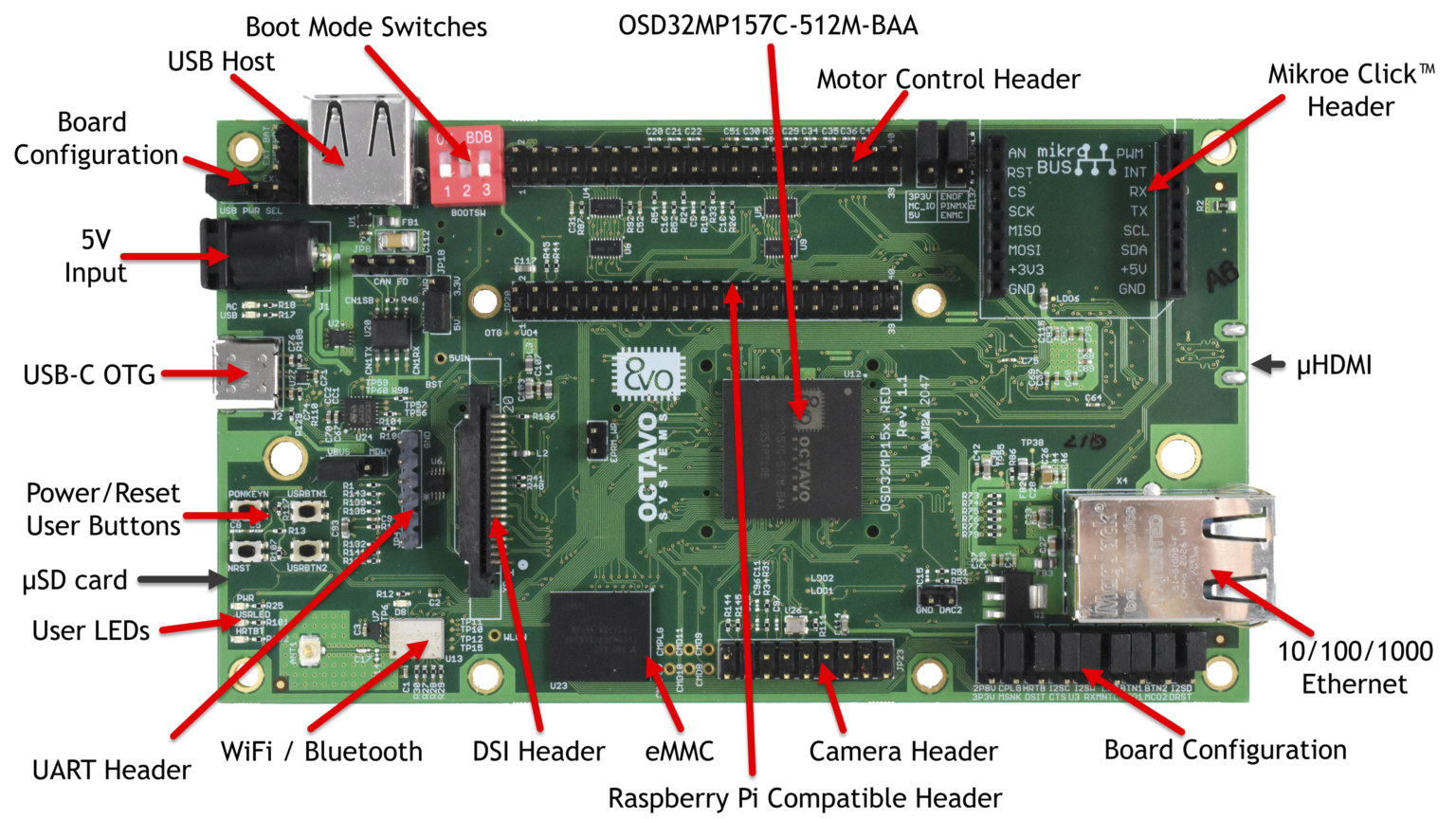Banana Pi has already designed an Amlogic S905X3 SBC with Banana Pi BPI-M5 that closely follows Raspberry Pi 3 Model B form factor, but they’ve now launched a more compact model with Banana Pi BPI-M2 Pro that follow the design of the company’ earlier BPI-M2+ SBC powered by the good old Allwinner H3 processor. BPI-M2 Pro comes with 2GB RAM, 16GB eMMC storage, HDMI video output, Gigabit Ethernet, Wifi & Bluetooth connectivity, as well as two USB 3.0 ports. Banana Pi BPI-M2 Pro specifications: SoC – Amlogic S905X3 quad-core Cortex A55 @ up to 2.0 GHz with an Arm Mali-G31 GPU System Memory – 2GB LPDDR4 Storage – 16GB eMMC flash, microSD card slot Video & Audio Output – HDMI 2.1 up to 4Kp60 with HDR, CEC, EDID support Connectivity Gigabit Ethernet Dual-band 802.11 b/g/n/ac WiFi 5 1×1 and Bluetooth 4.2 via Realtek RTL8821CU module USB – 2x USB 3.0 […]
Nezha RISC-V Linux SBC launched for $99 and up
Last month, we wrote about Allwinner D1 SBC & processor that promised to offer a relatively low-cost RISC-V Linux solution. We were not given a name at the time, but there was a logo of Nezha, a fictional character from Chinese literature. The board is now known as the Nezha SBC and has been launched on Indiegogo for $99 and up as a board designed for IoT projects running Linux, but can also be purchased directly on Aliexpress for the same price. [Update: It can also be purchased on Taobao for 599 RMB] Nezha SBC specifications: SoC – Allwinner D1 single-core XuanTie C906 64-bit RISC-V processor @ 1.0 GHz with HiFi4 DSP, G2D 2D graphics accelerators Memory – 1GB DDR3 memory Storage – 256MB SPI NAND flash, MicroSD card slot Video Output – HDMI 1.4 port up to 4Kp30, MIPI DSI & touch panel interface up to 1080p60 Decoding – […]
SolidRun HoneyComb LX2K becomes a certified Arm SystemReady ES platform
SolidRun HoneyComb LX2K is part of our list of the 5 most powerful Arm SBC’s in 2021. The mini-ITX board features an NXP LX2160A 16-core Arm Cortex-A72 processor, supports up to 64GB RAM, offers high-speed networking thanks to up to 4x SFP+ 10GbE cages and a Gigabit Ethernet port, as well as four SATA ports, a PCIe x8 slot, M.2 SSD slot and more. The board is ideal for networking applications and can be also be integrated into an Arm workstation for native application development. But just last month, we noted that while SolidRun talked about SBSA compliance a while ago, the status was unclear. The good news is that HoneyComb LX2K has just now become a certified Arm SystemReady ES (Embedded Server) compliant platform. Arm SystemReady is a set of standards and a compliance certification program that ensures systems just work with generic, off-the-shelf operating systems straight out of […]
Imago “VisionAI” Smart AI Camera supports Tensorflow Lite & AutoML Vision Edge
Imago Technologies GmbH “VisionAI” is a programmable Smart AI camera that combines a quad-core Cortex-A53 processor @ 1.8 GHz together with Google Edge TPU, and designed for embedded image processing applications in the fields of AI, Deep Learning, and Machine Learning. The smart camera supports TensorFlow Lite and AutoML Vision Edge frameworks, and is suited for tasks such as pattern recognition, classification, anomaly or defect detection in inspection applications, code reading, and other machine vision applications. Imago VisionAI (VisionSensor PV3 AI) camera specifications: SoC – Unnamed quad-core Arm Cortex-A53 processor @ 1.8 GHz (likely NXP i.MX 8M Mini) AI Accelerator – Google Edge TPU with up to 4 TOPS of AI processing power System Memory – 2 GB DDR4 RAM Storage – MicroSD card up to 32GB Connectivity – Gigabit Ethernet M12 connector Camera 1/1.8” 5MP mono or color CMOS sensor with 2560 × 1936 pixels resolution, up to 65 […]
AIO-CM4-101 “All-in-One Pi” is a Raspberry Pi CM4 based 10.1-inch industrial PC
We’ve previously written about Chipsee CM4-70 Industrial Pi 7-inch Panel PC based on Raspberry Pi CM4 module that is offered either as an embedded model to be integrated into the customer enclosure or as a fully integrated panel ready to be mounted into a wall or machine. The company has now launched another model with AIO-CM4-101 “All-in-One Pi” industrial PC offering a 10-inch touchscreen display that can be mounted by using 75x75mm VESA holes, for example on a display stand. AIO-CM4-101 All-in-One Pi specifications: SoM – Raspberry Pi CM4 with Broadcom BCM2711 quad-core Cortex-A72 processor at 1.5 GHz, up to 8GB RAM, up to 32GB eMMC flash Storage – MicroSD card slot for storage expansion Display – 10.1-inch IPS LCD with 1280×800 resolution, 10-point capacitive touchscreen, 350 nit brightness: Camera – Optional front-facing camera Audio – Mic input on the front panel, 2W internal stereo speaker, 3.5mm audio In/Out connector, […]
Raspberry Pi CM4 Panel PCs offer IP67 protection, 7-inch display
We just have covered Raspberry Pi CM4 in CutiePi 8-inch tablet, but I don’t think I’ve seen the latest Raspberry Pi Compute Module inside a panel PC that typically offers additional interfaces such as Ethernet, RS232, or CAN bus for industrial applications. But today I’m here to write not about just one Raspberry Pi CM4 panel PC, but two from Chipsee and WIN Enterprises all with a 7-inch display, and features like Ethernet, opto-isolated GPIOs, RS485 terminal blocks, etc…, and the Win Enterprises’ model also adds dust and waterproofness with IP67 ingress protection rating. Chipsee CM4-70 Industrial Pi 7-inch Panel PC Chipsee panel PC is offered in two versions with CM4-70-EM model meant to be integrated into the customer’s own chassis, and CM4-70-PA integrating the board and display into a fully assembled panel. Specifications: SoM – Raspberry Pi Compute Module 4 (CM4) with Broadcom BCM2711 quad-core Cortex-A72 processor, 2GB RAM, […]
ADLINK launches SMARC Short Size Module, Devkit with NXP i.MX 8M Plus
We had seen many i.MX 8M Plus modules with built-in AI accelerator announced at Embedded World 2021, including two SMARC modules from Congatec and iWave Systems. ADLINK has added another of i.MX 8M Plus module compliant with SMARC 2.1 “short” standard with LEC-IMX8MP system-on-module equipped with up to 8GB RAM, 128 GB eMMC flash, as well as a development kit called I-Pi SMARC IMX8M Plus prototyping platform. LEC-IMX8MP module specifications Specifications: SoC – NXP i.MX8M Plus with quad-core ARM Cortex-A53 processor, Vivante GC380 2D GPU and GC7000UL 3D GPU, 1080p60 video decoder & encoder, optional 2.3 TOPS Neural Processing Unit (NPU) System Memory – 2/4/8GB LPDDR4L-4266 Storage – 16, 32, 64, or 128GB eMMC flash (build option) Wireless – Optional 802.11 ac/a/b/g/n WiFi 5 2X2 MIMO and Bluetooth 5.0 module 314-pin MXM 3.0 edge connector Storage – 1x SDIO (4-bit) compatible with SD/SDIO standard, up to version 3.0 Display – […]
OSD32MP1-RED full-featured STM32MP1 development board launched for $265
OSD32MP1-RED development board was first announced last year together with another board based on Octavo Systems OSD32MP1 System-in-Package (SiP). The chip packs an STMicro STM32MP1 Cortex-A7/M4 processor, up to 1GB DDR3L memory, 4KB EEPROM, a PMIC, two low-power MEMS oscillators, over 100 passive components into a single 18x18mm 302 Ball BGA package. The company has now just announced the availability of the OSD32MP1-RED development platform on DigiKey, Arrow, and Mouser for around $265 and up. There have been a few modifications to the design with, for instance, the USB header replaced by a USB Type-A connector, but the most notable difference is that OSD32MP1-RED is now using a green PCB instead of the red one showed during the first announcement… OSD32MP1-RED specifications: SiP – Octavo Systems OSD32MP157C-512M-BAA with STM32MP157C SoC with dual-core Arm Cortex-A7, Cortex-M4 real-time core, plus 512MB DDR3 memory, STPMIC1A power management chip, EEPROM, oscillator, and passive components […]


